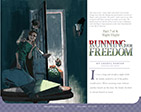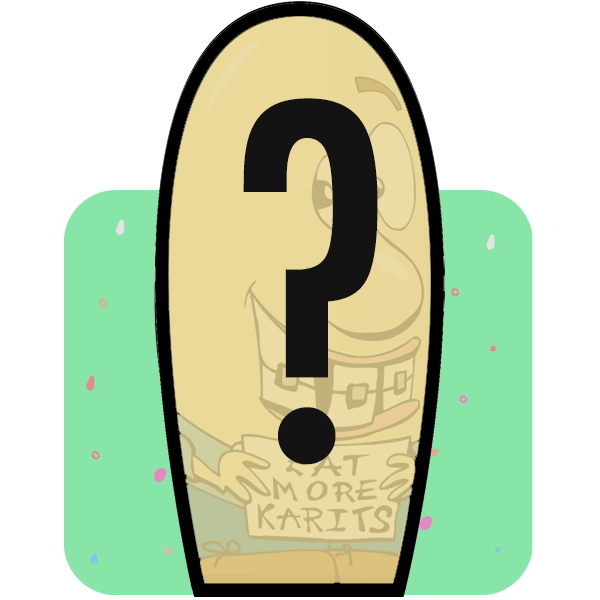It was a long and sleepless night
while the family waited to see if the police would arrive. When morning came
without another knock on the door, the family decided to attend church as
usual.
The service was a good one: Uncle
Oszkár gave a fine sermon. Marika looked around from her seat to see if anyone
was watching them. She was especially curious about the family who’d told the
government Papa had encouraged others to defect. But no one seemed to pay any
extra attention to them. Except for her own anxious heart, it seemed like any
other Sabbath morning.
Afterward, Mama, Papa, Marika, and
Erzsébet drove to visit Mama’s mother in Gödöllö one last time. Only Ilona
stayed home, wanting to remember her grandmother in happier times.
Once there, Marika walked slowly up
the pathway, mentally taking a picture of her grandmother’s tiny whitewashed
plaster house with its red-orange tile roof, surrounding apricot trees and
humble outhouse. Inside, the dirt floor was swept clean, as usual.
“Here, have some juice,” Grandma
said to Marika. “I have plenty. Enjoy.”
As she sipped the cool liquid,
Marika watched her mother hand her good winter coat to Grandma.
“You keep this for me,” Mama said.
Marika waited to see if she would
explain further, or if Grandma would question Mama’s intentions. Grandma looked
a bit confused, but asked no questions before thanking her daughter with a
kiss.
Marika understood that Mother
couldn’t take her heavy coat with them to Yugoslavia; if the authorities saw
them taking winter clothes across the border for a vacation in warm September,
they would immediately suspect them of not planning to return to Hungary. By
giving it to Grandma instead, she was making sure someone she loved got to
enjoy it.
They stayed for two hours. When it
was time to go, Grandma walked them out to the van, where Papa had another
surprise for her—Mama’s precious sewing machine. This time Marika clearly saw
suspicion fill Grandma’s eyes. Again, she did not ask questions, but took extra
time to give each of them a thorough hug and kiss goodbye.
Marika heard Papa sigh as he parked
the van in their driveway. It was already dark—Sabbath was over.
“Erzsébet, run inside and get
Ilona,” Papa said. “We need to talk out here, where no one will hear us.”
When they were all back in the van,
Papa spoke.
“I know not all of you wanted to
leave Budapest,” he said. “But the time has come, and either we all go or
nobody goes. So we’ll all leave together tonight, under the protection of
darkness. You can each take one suitcase, but pack only clothes for warm days
and cool nights, and whatever toiletries you absolutely must have. Your uncle
Oszkár will come when it’s safe to collect whatever valuables are left; then
we’ll get them later in America somehow.”
Mama immediately got busy packing
for herself and Papa while he got the van ready. In their bedroom, the girls
struggled to decide what to take and what to leave. “It’s not fair,” Ilona
complained. “I don’t want to leave all my things behind.”
Marika silently agreed, glancing
sadly at the family photo album on the end table. It was terrible to leave such
a thing behind. But like Mama’s coat, it would be a sure tip-off to the
inspectors that they were leaving for good, which was almost never permitted.
Then they’d send the whole family back and arrest Papa. No possession, no
matter how precious, was worth that risk.
“Just remember, you’re not the only
one,” Marika chided her. With a firm snap of the suitcase latch, she added,
“Mama has to leave her china dishes, her favorite sewing tools, even things
Papa gave her when they were first married! But don’t you see, Ilona? She’d
rather have Papa safe and sound with her than have the things he’s given her.”
“Yes, and I have to leave all my
friends from school,” piped in 17-year-old Erzsébet. “But even I know it’s
better this way.”
Ilona looked at her sisters and
shrugged, unwilling to argue any further.
Within one hour everything was
ready. The whole family helped push the van out from the front yard so the
other two families in the house wouldn’t hear them leave. If they didn’t know
the family was gone, they couldn’t give the police any information.
When they were far enough away,
everyone got inside and Papa started the engine, turning the van toward his
parents’ house nearby.
Parking on the side of the road, he
said, “Come, girls, help me with the honey cans.”
All three girls helped roll the
half-dozen metal milk cans, each filled with 50 pounds of valuable honey from
Papa’s beekeeping business, down the hillside to the bushes below. The idea was
to hide them in their grandparents’ yard, where a few handfuls of dry leaves
and branches thrown on top would hide them from passersby.
“My brother knows I’m leaving the
honey here,” Papa said. “Our parents can use it or sell it after we’re gone.”
After that, there was nothing left
to do but drive to the border as fast as they could without attracting
attention. For the entire four-hour trip Marika kept looking out the back
window to see if they were being followed by the police.
“What will we do once we’re in
Yugoslavia?” she asked her parents.
Papa gave Mama a sidelong glance.
“There’s an Adventist family there
that owns a big farm,” he said. “For a fee we can stay with them while we wait
to get passports to cross the Yugoslavian border into Austria.”
“A farm?” moaned Ilona. “What will
we do on a farm? I’d rather be in the city.”
“Never mind that,” he warned. “This
isn’t a vacation, you know. We must stay where it’s safest, and that’s out in
the country. Besides, we’ll have to work to earn our keep and to help pay for
the passports. That won’t leave any time to miss city life.”
“I think it will be fun,” Erzsébet
said. “I like cows and horses.”
“You would,” sighed Ilona.
“Girls, that’s enough,” Mama
scolded. “We’re almost at the border. Please keep quiet and let Papa do all the
talking.”
In just a few minutes inspectors
would be looking at their exit visas and going through their suitcases. Marika
would be glad to stop worrying about the police, but getting across the border
was a frightening thing. This wasn’t like when she took her young cousin across
the Austrian border on the train. For that trip her visa was used for its
legally intended purpose—a round trip there and back.
But this time was different; they
weren’t coming back. That meant fooling the inspectors into believing this was
just a vacation, in order to save Papa. Would their plan work? Or would the
guards guess the truth and ruin their chance for freedom?


